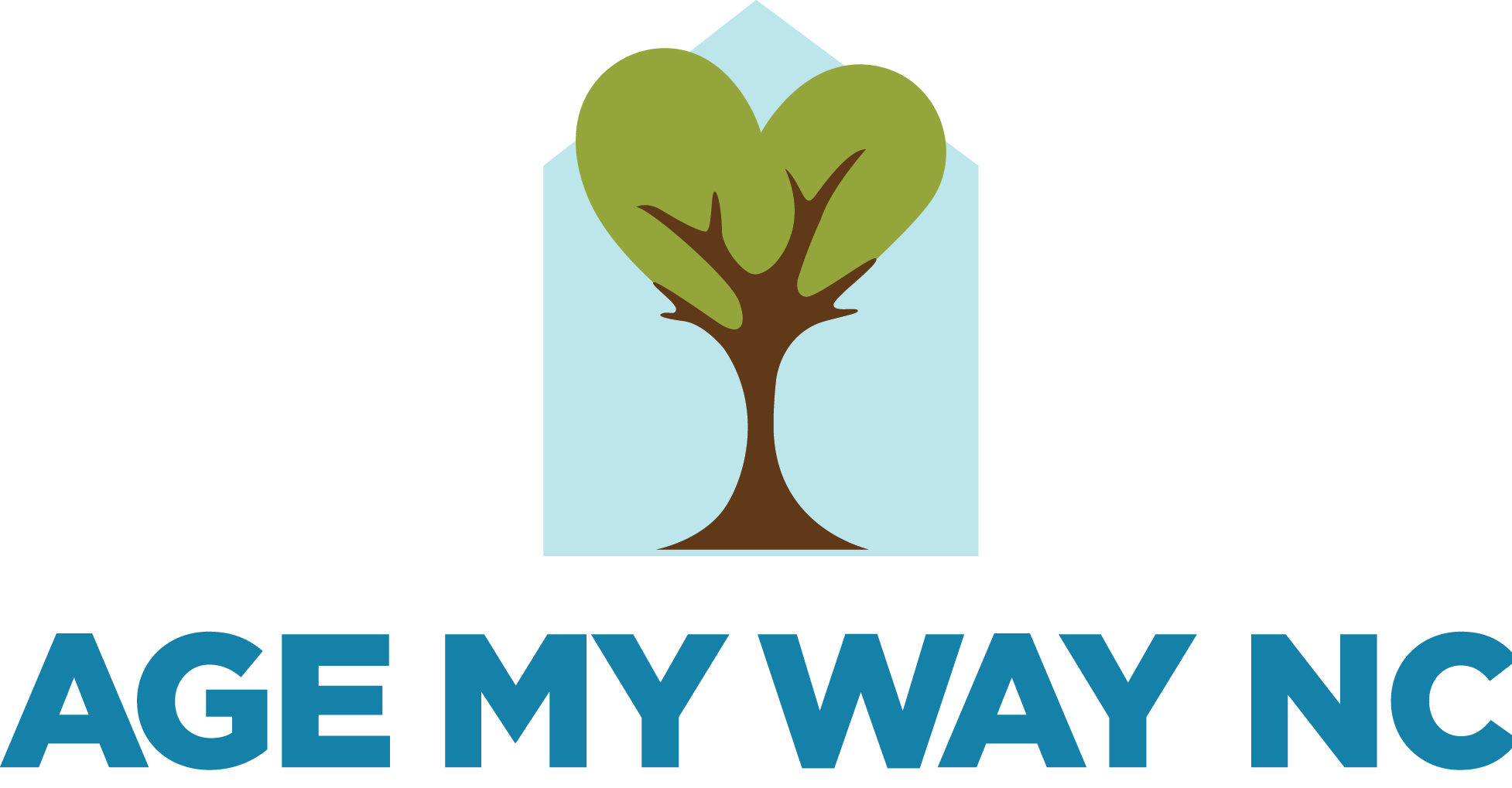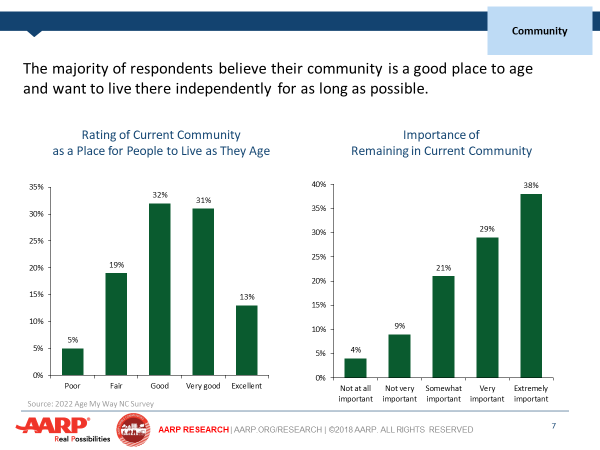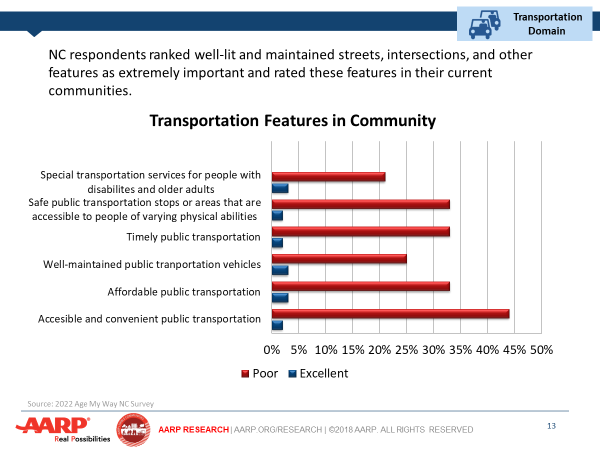AARP Hearing Center

RALEIGH, NC – Older North Carolinians, who now outnumber younger ones, love where they live. But a primary concern when it comes to aging, is having the ability to live independently for as long as possible according to a new AARP survey of adults ages 45 and older.

A collaborative effort between AARP and the State of North Carolina called, “Age My Way NC,” asked people how their communities, counties, and rural areas are meeting the needs of the state’s growing population of older adults.
Age My Way NC is an effort to identify and prioritize the needed changes to support what has become the state’s largest population group, older adults. The findings the group released today are based on a statewide survey of 3,209 residents. It was conducted between May 2, through August 26, 2022, and has a margin of error of 1.8 percent.
Governor Roy Cooper, who addressed the Age my Way NC Summit where the survey results are being examined said, “Our aging population strengthens our state and our communities. We'll continue working to make North Carolina a place where seniors can live long lives of engagement and purpose."
NC Secretary of the Department of Health and Human Services (NCDHHS) Kody H. Kinsley said, “We are committed to improving the health and well-being of everyone living in North Carolina across their lifespan. At NCDHHS, efforts in each of our top priorities -- supporting behavioral health and resilience, strengthening child and family well-being, and building a strong and inclusive workforce – work together to ensure older adults can thrive.”
Age My Way NC collaborator Mary Penny Kelley, Executive Director of Hometown Strong, a Governor’s initiative helping react to the needs of rural communities said, “Supporting older adults is matter of common sense and dollars and cents. They account for 40 percent of the state’s Gross Domestic Product (GDP) and 40 percent of our jobs.”
Director of the NC Division on Aging and Adult Services Joyce Massey-Smith said, “In just a few short years, there will be more people living in North Carolina over age 65 that under 17. Knowing how we can best support people at the community and state level is vital when it comes to healthy aging in the state.”
Age My Way NC Survey Findings:
While most said they want to stay in the current homes and communities as long as possible, there were several major factors for moving including: homes didn’t allow for independent living, social isolation’s negative impact on health, as well as expenses of needed services to maintain their homes.

Living Independently – Key Findings
- 99% of survey respondents said that it is important to live independently in their own home as they age.
- 76% of survey respondents rated their current community as an “excellent, very good or good” place to live as they age.
- 53% of survey respondents said they are likely to stay in their current home and never move, while 17% said they would relocate within their community and 30% said they would relocate elsewhere.
- 22% of survey respondents said they feel isolated from others and 31 percent said they have a lack of companionship.
Other significant factors for leaving their home were personal safety and security issues; desiring to live in an area with better health care facilities; relocating to be closer to family; requiring more access to public transportation; needing to live in an area with a lower cost of living; eager to live in a community with more opportunities for interaction.
Healthcare – Key Findings:
38% of respondents said that access to well-trained certified home health care providers was “excellent, very good or good,” and only 28% said that care is affordable. Also ranked low, was the availability of affordable home care services such as personal care and housekeeping.
Living independently also requires services including transportation options, homes designed for senior living, access to public spaces, availability to health care and home health, and being able to be a participant in community activities and not be isolated.
Mobility and access to public transportation – Key Findings:

- Only 22% of respondents ranked access to public transportation as “excellent or very good.”
- Only 26% ranked public transportation as affordable.
- Respondents gave high ranking to easy-to-read traffic signs and low rankings to the availability of separate paths for cyclists and pedestrians.
The Age My Way NC Survey results were released during the Age My Way NC Summit sponsored by the Governor’s Initiative “Hometown Strong,” the NC Department of Health and Human Services’ Division of Aging and Adult Service, and AARP North Carolina.
AARP North Carolina President Dr. Catherine Sevier concluded, “Like our partners here today, AARP supports the efforts of neighborhoods, towns, cities and rural areas to be great places for people of all ages. We believe that communities should provide safe, walkable streets; age-friendly housing and transportation options; access to needed services; and opportunities for residents of all ages to participate in community life.”
More on this initiative and “age-friendly” information can be found at:
https://hometownstrong.nc.gov































































